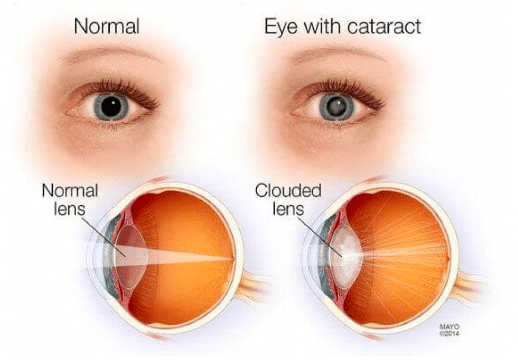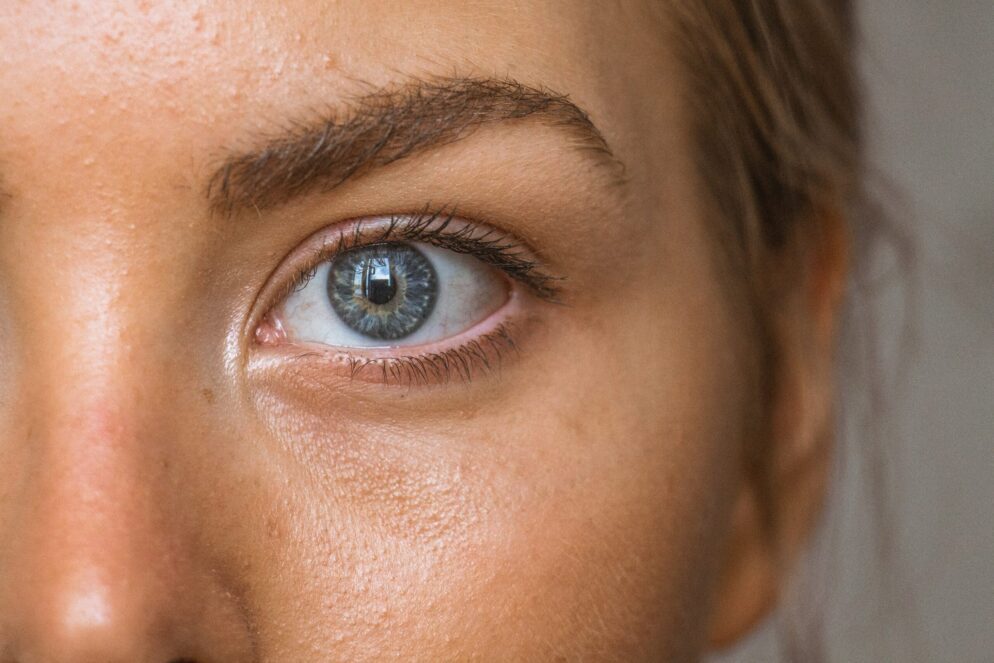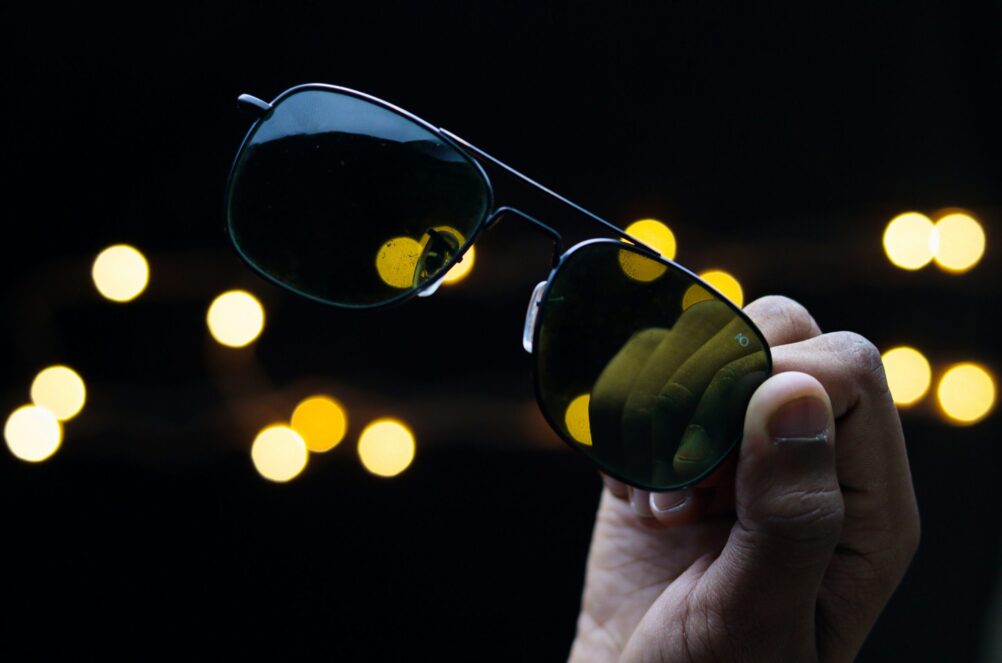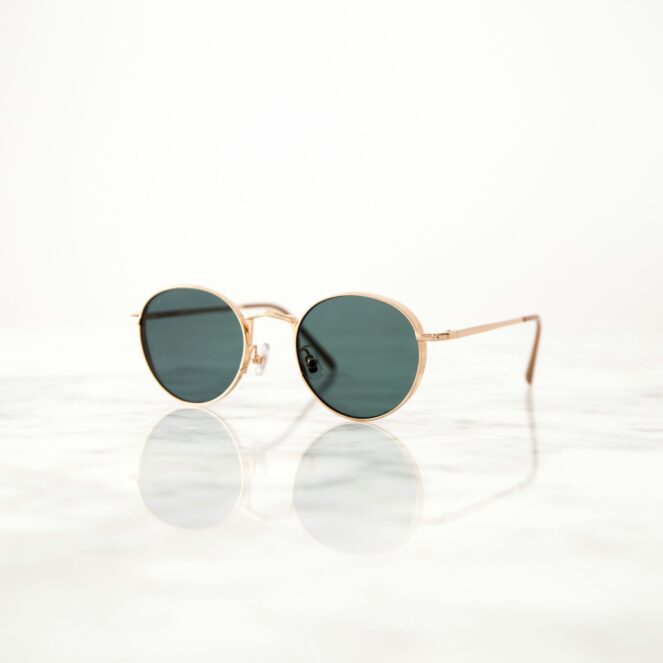Eye Health
How to Prevent Cataracts: A Comprehensive Guide

Last Updated on March 17, 2024 by Nurse Vicky
How to Prevent Cataracts: A Comprehensive Guide
As we age, our bodies undergo various changes, and our eyes are no exception. One common age-related eye condition is cataracts. Cataracts occur when the lens of the eye becomes cloudy, leading to blurry vision and, if left untreated, potential vision loss. In this article, we will explore effective strategies to prevent cataracts and maintain optimal eye health.
1. Maintain a Healthy Diet
Proper nutrition plays a crucial role in maintaining overall health, including the health of our eyes. Consuming a diet rich in antioxidants, vitamins, and minerals can help reduce the risk of developing cataracts.
Include foods such as:
- Fruits and vegetables: Opt for colorful options like spinach, kale, carrots, and berries.
- Fatty fish: Salmon, tuna, and mackerel are excellent sources of omega-3 fatty acids.
- Nuts and seeds: Almonds, walnuts, and flaxseeds provide beneficial nutrients for eye health.
By incorporating these foods into your diet, you can provide your eyes with the necessary nutrients to maintain optimal function and potentially reduce the risk of cataracts.
2. Protect Your Eyes from Harmful UV Rays
Exposure to ultraviolet (UV) rays from the sun can contribute to the development of cataracts.
To protect your eyes, follow these guidelines:
- Wear sunglasses: Choose sunglasses that block 100% of UVA and UVB rays.
- Wear a hat: Pair your sunglasses with a wide-brimmed hat for added protection.
- Limit sun exposure: Avoid prolonged periods in direct sunlight, especially during peak hours.
By taking these precautions, you can minimize the harmful effects of UV rays on your eyes and reduce the risk of cataracts.
3. Quit Smoking
Smoking not only poses numerous health risks but also increases the likelihood of developing cataracts. The harmful chemicals in tobacco smoke can damage the lens of the eye, leading to the formation of cataracts. Quitting smoking is one of the most effective ways to reduce your risk of cataracts and improve your overall health.
4. Schedule Regular Eye Exams
Regular eye exams are essential for maintaining healthy eyes and detecting any potential issues early on. An eye care professional can identify the early signs of cataracts and provide appropriate guidance and treatment options. Aim to schedule comprehensive eye exams at least once every two years, or as recommended by your eye care provider.
5. Manage Chronic Conditions
Several chronic conditions, such as diabetes and hypertension, can increase the risk of developing cataracts. It is crucial to manage these conditions effectively through proper medication, lifestyle modifications, and regular check-ups. By controlling these underlying health issues, you can reduce the likelihood of cataract formation.
Frequently Asked Questions
1. Can cataracts be reversed without surgery?
No, cataracts cannot be reversed without surgery. However, certain lifestyle changes and strategies may slow down their progression.
2. Are cataracts preventable?
While it may not be possible to prevent cataracts entirely, adopting a healthy lifestyle and following the preventive measures mentioned in this article can reduce the risk of developing cataracts.
3. At what age do cataracts typically develop?
Cataracts can develop at any age, but they are more commonly associated with aging. Most people start experiencing cataract symptoms after the age of 60.
4. Can diet alone prevent cataracts?
A healthy diet can contribute to overall eye health and potentially reduce the risk of cataracts. However, it is essential to combine a nutritious diet with other preventive measures for optimal results.
5. How long does it take for cataracts to develop?
The development of cataracts is a gradual process that can span several years. The progression varies from person to person and depends on various factors such as overall health and lifestyle choices.
6. Can cataracts cause blindness?
If left untreated, cataracts can cause significant vision impairment and, in severe cases, lead to blindness. However, cataract surgery is a highly effective treatment option that can restore vision.
7. Are there any natural remedies for cataracts?
While there are no proven natural remedies for cataracts, adopting a healthy lifestyle and following the preventive measures mentioned in this article can help reduce the risk of cataracts or slow down their progression.
Conclusion
Preventing cataracts requires a proactive approach to eye health. By adopting a healthy diet, protecting your eyes from harmful UV rays, quitting smoking, scheduling regular eye exams, and managing chronic conditions, you can significantly reduce the risk of cataracts and maintain clear vision as you age. Remember, taking care of your eyes is an investment in your overall well-being.
Eye Health
Natural Remedies for Relieving Dry Eyes

Natural Remedies for Relieving Dry Eyes
If you suffer from dry eyes, you’re not alone. Many people experience this uncomfortable condition, which can be caused by various factors such as aging, environmental conditions, or certain medical conditions.
How to Naturally Relieve Dry Eyes
While there are over-the-counter eye drops available, you may prefer to explore natural remedies to alleviate your symptoms. Here are some effective ways to naturally relieve dry eyes:
1. Stay Hydrated
Drinking an adequate amount of water throughout the day can help keep your body and eyes hydrated. Aim for at least eight glasses of water daily to promote tear production and prevent dryness.
2. Use Warm Compresses
Applying a warm compress to your eyes can help stimulate tear production and soothe dryness. Simply soak a clean cloth in warm water, wring out the excess, and place it over your closed eyes for a few minutes. Repeat this several times a day for relief.
3. Increase Omega-3 Fatty Acids
Omega-3 fatty acids have anti-inflammatory properties that can reduce eye dryness. Incorporate foods rich in omega-3s into your diet, such as fatty fish (salmon, mackerel), flaxseeds, chia seeds, and walnuts. Alternatively, you can take omega-3 supplements after consulting with your healthcare provider.
Frequently Asked Questions
1. Can dry eyes be caused by allergies?
Yes, allergies can contribute to dry eyes. Allergic reactions can cause inflammation in the eyes, leading to dryness and discomfort.
2. Is it necessary to see a doctor for dry eyes?
If your dry eyes persist or become severe, it is advisable to consult with an eye doctor. They can determine the underlying cause of your dry eyes and recommend appropriate treatment options.
3. Can excessive screen time worsen dry eyes?
Extended periods of screen time can contribute to dry eyes due to decreased blinking. It is important to take regular breaks, blink consciously, and use artificial tears to keep your eyes lubricated.
4. Are there any natural remedies for dry eyes during winter?
During winter, when the air is drier, you can use a humidifier to add moisture to the air. Additionally, wearing protective eyewear outdoors can shield your eyes from harsh winds and cold temperatures.
5. Can stress and lack of sleep affect dry eyes?
Yes, stress and lack of sleep can worsen dry eye symptoms. Managing stress, practicing relaxation techniques, and getting enough sleep can help alleviate dryness and improve overall eye health.
6. Are there any specific eye exercises for dry eyes?
While there are no specific eye exercises for dry eyes, taking regular breaks from visually demanding tasks and practicing the 20-20-20 rule (looking away from the screen every 20 minutes for 20 seconds at an object 20 feet away) can help reduce eye strain and dryness.
7. Can diet affect dry eyes?
Yes, a healthy diet rich in vitamins, minerals, and antioxidants can support eye health. Consuming foods like carrots, leafy greens, citrus fruits, and bell peppers can provide essential nutrients for maintaining optimal eye moisture.
Conclusion
While dry eyes can be bothersome, there are natural remedies that can provide relief. By staying hydrated, using warm compresses, and increasing your intake of omega-3 fatty acids, you can improve your eye moisture and reduce discomfort. Remember to consult with a healthcare professional if your symptoms persist or worsen.
Eye Health
Glaucoma: Affecting People of All Ages

Can Glaucoma Affect People of All Ages?
Glaucoma, a group of eye conditions that damage the optic nerve, is often associated with older individuals. However, it is essential to understand that glaucoma can affect people of all ages. While it is more prevalent in older adults, it can also occur in children, teenagers, and young adults.
Glaucoma in Children and Teenagers
Although rare, glaucoma can develop in children and teenagers. Pediatric glaucoma, also known as childhood glaucoma, is typically caused by a structural abnormality in the eye’s drainage system. This condition can be present at birth or develop during the early years of a child’s life.
Early diagnosis and treatment are crucial in managing pediatric glaucoma. If left untreated, it can lead to permanent vision loss and other complications. Symptoms of glaucoma in children may include excessive tearing, light sensitivity, cloudy corneas, and enlarged eyes. If you notice any of these signs in your child, it is important to consult an ophthalmologist for a comprehensive eye examination.
Glaucoma in Young Adults
Glaucoma can also affect young adults, typically between the ages of 20 and 40. This form of glaucoma is known as primary open-angle glaucoma (POAG). POAG develops gradually and is often asymptomatic in the early stages, making it challenging to detect without regular eye exams.
It is crucial for young adults to prioritize regular eye check-ups, even if they do not experience any vision problems. Early detection and treatment of glaucoma can help prevent or slow down the progression of the disease, minimizing the risk of vision loss in the future.
Factors Contributing to Glaucoma in Younger Individuals
While the exact causes of glaucoma in younger individuals are not fully understood, several factors can contribute to its development.
These factors may include:
- Family history of glaucoma
- High eye pressure
- Thin central corneas
- Eye injuries
- Long-term use of corticosteroids
It is important to note that even individuals without these risk factors can develop glaucoma. Regular eye exams are essential for early detection and timely intervention.
Frequently Asked Questions
1. Can glaucoma occur in infants?
Yes, glaucoma can occur in infants. It is known as congenital glaucoma and is present at birth or develops within the first few years of life.
2. Are there any lifestyle changes that can help prevent glaucoma?
While lifestyle changes cannot prevent glaucoma, maintaining a healthy lifestyle, including regular exercise and a balanced diet, can contribute to overall eye health.
3. Can glaucoma be cured?
Currently, there is no cure for glaucoma. However, early detection and treatment can help slow down the progression of the disease and preserve vision.
4. How often should I have my eyes checked for glaucoma?
It is recommended to have a comprehensive eye exam, including glaucoma screening, every 1 to 2 years, depending on your age and risk factors.
5. Can glaucoma be hereditary?
Yes, glaucoma can have a hereditary component. If you have a family history of glaucoma, it is important to inform your eye care professional.
6. Can glaucoma be treated with medication?
Yes, in many cases, glaucoma can be managed with medication, such as eye drops, to lower intraocular pressure.
7. Is glaucoma always associated with high eye pressure?
No, not all types of glaucoma are associated with high eye pressure. Some forms, such as normal-tension glaucoma, can occur with normal or low eye pressure.
Conclusion
Glaucoma is not limited to older individuals. It can affect people of all ages, including children, teenagers, and young adults. Early detection and treatment play a crucial role in managing glaucoma and preserving vision. Regular eye exams, regardless of age or symptoms, are key to identifying glaucoma in its early stages. If you suspect any vision problems or have concerns about glaucoma, it is always best to consult with an eye care professional.
Eye Health
Can Wearing Sunglasses Protect the Eyes from UV Damage?

Can Wearing Sunglasses Protect the Eyes from UV Damage?
When it comes to protecting our eyes from the harmful effects of UV radiation, sunglasses play a crucial role. Not only do they shield our eyes from the bright glare of the sun, but they also provide a layer of defense against the invisible UV rays that can cause long-term damage to our vision.
UV radiation is a type of electromagnetic radiation that is emitted by the sun. It is divided into three categories: UVA, UVB, and UVC. While UVC rays are absorbed by the Earth’s atmosphere and do not reach our eyes, UVA and UVB rays can penetrate the atmosphere and cause harm.
The Importance of UV Protection
Exposure to UV radiation can have various adverse effects on our eyes. Prolonged exposure to UV rays can increase the risk of developing conditions such as cataracts, macular degeneration, and even certain types of eye cancer.
Wearing sunglasses with proper UV protection can significantly reduce these risks. The lenses of these sunglasses are designed to block out a significant amount of UVA and UVB rays, providing a barrier between our eyes and the harmful radiation.
Choosing the Right Sunglasses
Not all sunglasses are created equal when it comes to UV protection. To ensure that your eyes are adequately shielded from UV radiation, look for sunglasses that offer 100% UV protection or are labeled as blocking UVA and UVB rays. Additionally, opt for sunglasses that fit properly and cover a large portion of your eyes, including the delicate skin around them.
It’s worth noting that the darkness of the lenses does not necessarily indicate the level of UV protection they provide. Even lightly tinted lenses can offer excellent UV protection if they are specifically designed for it.
Other Ways to Protect Your Eyes from UV Damage
While wearing sunglasses is an essential step in protecting your eyes from UV damage, there are other measures you can take to further safeguard your vision:
- Wear a wide-brimmed hat or a cap to provide additional shade for your eyes.
- Limit your time in direct sunlight, especially during peak UV hours (usually between 10 am and 4 pm).
- Use sunscreen on your face and eyelids to protect the skin around your eyes from UV damage.
- Consider polarized sunglasses, which can reduce glare and improve visibility in bright conditions.
Frequently Asked Questions
1. Can wearing sunglasses prevent cataracts?
While wearing sunglasses can’t guarantee the prevention of cataracts, they can significantly reduce the risk of developing them. UV radiation is a known risk factor for cataracts, and wearing sunglasses with proper UV protection can help minimize this risk.
2. Are all sunglasses with dark lenses effective in protecting against UV rays?
No, the darkness of the lenses does not necessarily indicate the level of UV protection they provide. It’s important to choose sunglasses that offer 100% UV protection or are labeled as blocking UVA and UVB rays, regardless of the lens tint.
3. Can UV radiation damage the skin around the eyes?
Yes, UV radiation can damage the delicate skin around the eyes, leading to premature aging, wrinkles, and an increased risk of skin cancer. Applying sunscreen to the face and wearing sunglasses can help protect the skin from UV damage.
4. Can children benefit from wearing sunglasses?
Absolutely! Children’s eyes are even more susceptible to UV damage than adults’, so it’s crucial to protect their eyes from a young age. Look for sunglasses specifically designed for children that offer 100% UV protection.
5. Are there any long-term effects of UV damage to the eyes?
Yes, prolonged exposure to UV radiation can lead to various long-term effects on the eyes, including an increased risk of cataracts, macular degeneration, and certain types of eye cancer. Wearing sunglasses with proper UV protection can help minimize these risks.
6. Can I get UV protection from contact lenses?
Some contact lenses offer limited UV protection, but they should not be relied upon as the sole means of protecting your eyes from UV radiation. It’s still important to wear sunglasses with proper UV protection in addition to any UV-blocking contact lenses.
7. Can I wear any type of sunglasses for UV protection?
No, not all sunglasses provide adequate UV protection. To ensure your eyes are properly shielded from UV radiation, look for sunglasses that offer 100% UV protection or are labeled as blocking UVA and UVB rays.
Conclusion
Protecting our eyes from UV damage is crucial for maintaining good eye health. Wearing sunglasses with proper UV protection is an effective way to shield our eyes from the harmful effects of UV radiation. By choosing sunglasses that block UVA and UVB rays and taking additional precautions, such as wearing a hat and limiting sun exposure, we can ensure that our eyes stay healthy and protected.
-

 Trending Stories1 year ago
Trending Stories1 year agoCDC: 1 in 4 Americans Still COVID-Free by End of 2022
-

 Health5 years ago
Health5 years agoMeghan Trainor Shares Motivational New Song ‘Blink’
-

 Health7 months ago
Health7 months agoHow Do Pawpaw Seeds Support Cardiovascular Health?
-

 Health2 years ago
Health2 years agoHow Long Does Monkey Pox Last Before It Surfaces in the Body?
-

 Health3 years ago
Health3 years agoWhat Causes Swollen Body? Understanding Edema and its Triggers
-

 Health3 years ago
Health3 years agoNutrition and the Importance of a Fitness Program – 3 Things to Know
-

 Health3 years ago
Health3 years ago5 Weird Reasons Why Pimples Disappear After Marriage
-

 Health2 years ago
Health2 years agoHealth Benefits Of Pawpaw Seed? 7 Things To Know





